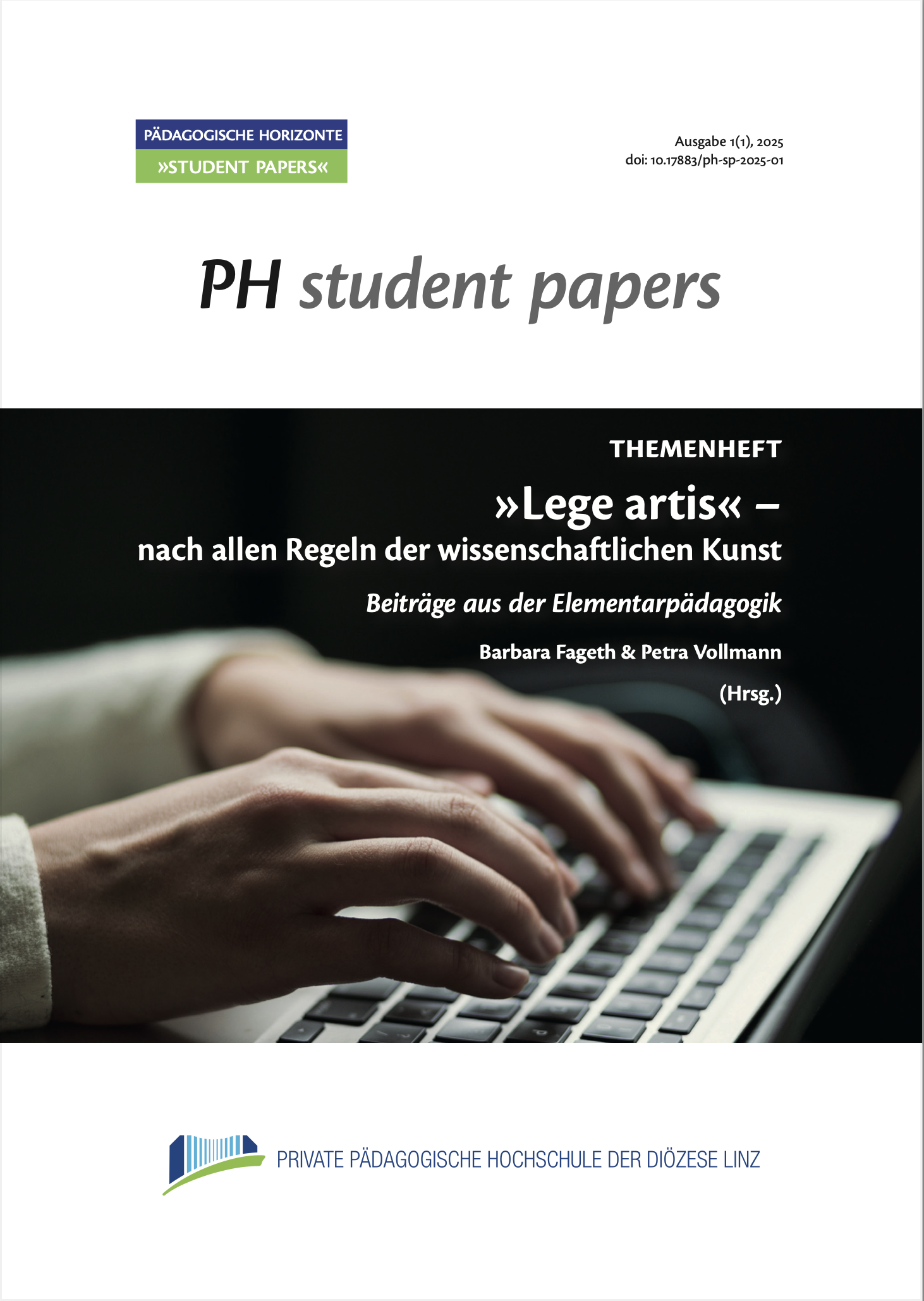Bringing peers into play. Playing together with children of the same age – educational implications for pre-school children
Keywords:
playing together, co-constructive learning processes, scenic play, educational play, metacognitive thinkingAbstract
This article examines the significance of playing together with peers for children's learning and how children can be supported in this process in an elementary education context. The focus is particularly on scenic play (Brandes, 2008, p. 88ff). Theoretically, it is examined how children acquire knowledge through playing together and develop metacognitive thinking skills through scenic play. The group is considered a social system (Brandes, 2008, p. 123ff) in which self-education processes not only take place in and through groups, but the self-education of children's groups themselves and the relevant factors for this process are also examined. The article analyses the role of the educational professional in fantasy play and presents a play-educational method that enables professionals to facilitate positive play experiences for children in the group. The literature review shows different theoretical perspectives: While the Danish authors Kristina Avenstrup and Sine Hudecek (2019, p. 15) consider joint play instructions to be central to fantasy play, Ina Schenker (2019, p. 267) limits the involvement of professionals to participation desired by the children. Ditte Winther-Lindqvist (2019, p. 6) emphasises the active support of children's play, while Holger Brandes (2008, p. 178) argues for restrained intervention and minimal guidance. On the basis of current play research (Avenstrup & Hudecek, 2019; Brandes & Schneider-Andrich, 2019; Schenker, 2019) and the practical experience of educational professionals (Avenstrup & Hudecek, 2019), guiding principles for working with groups of children in elementary educational institutions are formulated. The key challenge for professionals is to find a balance between guiding and encouraging children's learning processes without affecting the essence of play.
Downloads
Published
Issue
Section
License
Copyright (c) 2025 Bettina Stallinger (Autor/in)

This work is licensed under a Creative Commons Attribution-NonCommercial-ShareAlike 4.0 International License.

 ® 2025
® 2025 